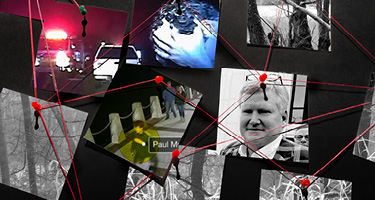Emergency responders in South Carolina suffered another setback this year as the South Carolina legislature rejected a bill that would have expressly made workers’ compensation benefits available to first responders diagnosed with post-traumatic stress disorder.
Michael Ackerman, a former Charleston County Sheriff’s deputy who was shot in the line of duty and lost his partner in the same shootout in 2014, has been working relentlessly to get legislation passed to ensure workers’ comp coverage for emergency responders who suffer from PTSD. The bill, known as S-429, has been introduced repeatedly since 2015.
First responders face life-or-death issues while doing their jobs. It should come as no surprise then that PTSD is more commonly diagnosed among first responders than in the general population.
A 2018 report from the U.S. Substance Abuse and Mental Health Services Administration (SAMHSA) says that 30 percent of first responders develop behavioral health conditions including depression and post-traumatic stress disorder (PTSD), as compared with 20 percent in the general population. Firefighters are more likely to attempt or contemplate suicide, and between 125 and 300 police officers commit suicide every year.
“First responders are usually the first on the scene to face challenging, dangerous and draining situations. They are also the first to reach out to disaster survivors and provide emotional and physical support to them. These duties, although essential to the entire community, are strenuous to first responders and with time put them at an increased risk of trauma,” SAMHSA health researchers said.
South Carolina Workers’ Compensation Law
Under South Carolina workers’ compensation insurance program, a worker who has suffered job-related injuries is supposed to be able to obtain payments to cover all medical expenses and long-term benefits for a permanent disability, as well as a portion of lost earnings.
South Carolina’s current workers’ compensation law says that for stress, mental injuries and mental illness suffered due to job conditions “unaccompanied by physical injury” to warrant medical benefits, the conditions that caused the injury must be shown to have been “extraordinary and unusual in comparison to the normal conditions of the particular employment.”
Ackerman said he had sought counseling because of lingering mental health issues related to the shootout that wounded him and took his partner’s life.
“Besides the physical injuries, I have been dealing with some very severe emotional injuries,” he said. “In October 2014, I was in a very dark place mentally and emotionally. It was at that point that I realized I need specialized help. I needed to see someone who understood the nature of law enforcement, and what we go through every day. So, I began looking and asking around, and notified my workers’ comp case manager I needed to see someone. I found a doctor who specializes in first responder trauma and made an appointment.
“A few days after my first appointment, I was notified by my case manager that the appointment would not be covered.”
Ackerman told PoliceOne that, with the assistance of a workers’ compensation lawyer, he was able to obtain payment for his mental health treatment because he also had a physical injury.
“However, if you develop PTSD because of an on-the-job incident and were not physically injured, workers’ comp will NOT cover you for the PTSD,” he said.
The proposed legislation would eliminate the requirement that emergency responders establish that “extraordinary and unusual” conditions occurred for PTSD to be covered as a compensable workers’ compensation injury for emergency responders.
“Senate Bill S-429 basically changes a couple of words in the state workers’ compensation law so that all first responders would be able to claim PTSD, if they are diagnosed as having PTSD by a licensed medical professional, as a compensable injury under workers’ comp if the PTSD was related to any incident on the job,” Ackerman told PoliceOne.com.
Is PTSD an Occupational Disease?
Post-traumatic stress disorder is a mental health condition caused by experiencing or witnessing a terrifying event, according to the Mayo Clinic. Common PTSD-triggering events include military combat, terrorist attacks, fires, natural disasters, plane crashes, car crashes, assaults, robberies, and other extreme or life-threatening events.
A variety of personal and environmental factors combine to determine whether a traumatic event will result in PTSD. Among the factors the Mayo Clinic says may make someone more likely to develop PTSD are:
- Having a job that increases the risk of being exposed to traumatic events, such as military personnel and a first responder.
- Stressful experiences, including the amount and severity of trauma the individual has gone through in their life.
- Experiencing intense or long-lasting trauma.
The nature of the job means that first responders are exposed to death, injury, grief, pain, and loss and face direct threats to their personal safety, the SAMHSA report said.
People with PTSD may suffer from overwhelming anxiety, flashbacks, nightmares and uncontrollable thoughts about the event. If PTSD lingers without effective treatment, the inability to escape the anxiety and fear can lead to depression and self-harm.
What Medical Issues Does South Carolina Workers’ Compensation Cover?
The South Carolina Workers’ Compensation Act provides that, if an employee suffers injury by accident in the course of employment, that individual is entitled to recover medical expenses, compensation for lost work time, and permanent disability benefits if he/she suffered any permanent injury as a result of the work accident.
The S.C. Workers’ Compensation Commission describes medical treatment an injured worker is entitled as “all necessary medical treatment that is likely to lessen your disability. Workers' compensation generally pays for surgery, hospitalization, medical supplies, prosthetic devices, and prescriptions.”
Section 42-1-160(B) of the Workers’ Comp Act says “stress, mental injuries, and mental illness arising out of and in the course of employment unaccompanied by physical injury and resulting in mental illness or injury are not considered a personal injury unless the employee establishes, by a preponderance of the evidence:
“(1) that the employee's employment conditions causing the stress, mental injury, or mental illness were extraordinary and unusual in comparison to the normal conditions of the particular employment; and
“(2) the medical causation between the stress, mental injury, or mental illness, and the stressful employment conditions by medical evidence.”
Even with language on the books requiring “extraordinary and unusual” circumstances, most injured emergency responders should be able to obtain workers’ comp assistance for treatment of PTSD.
For example, in many police, sheriff’s and fire departments, particularly those serving rural areas of South Carolina, a traumatic experience that caused PTSD symptoms would be extraordinary and unusual. A Washington Post database of police shootings shows 12 shootings across South Carolina in all of 2018, so they are still unusual events.
Only about a quarter (27%) of all police officers say they have ever fired their service weapon while on the job, according to a Pew Research Center survey conducted by the National Police Research Platform. Pew cautions that the fact that an officer has fired their service weapon while on duty should not be interpreted to mean that the officer shot someone.
The population size of the area where a police officer works also is associated with the probability that an officer will have fired his or her weapon while on duty, Pew says. While 23% of officers in communities with fewer than 400,000 residents have discharged their gun, 30% of officers in areas with populations of 400,000 or more said they had done so.
In other occupations, a traumatic event that caused work-related PTSD would be even more extraordinary or unusual. It might be something rare like an unplanned explosion on a job site or witnessing a co-worker’s gruesome injury or being backed over by a work truck.
Making a Case for Workers’ Comp After a PTSD Diagnosis
Our workers’ compensation attorneys at Joye Law Firm would seek to convince the S.C. Workers’ Compensation Commission that an injured emergency responder’s claim for medical benefits including mental health counseling and therapy was entirely justified after a work-related accident.
To obtain workers’ comp benefits, the injured worker would be required to have a medical diagnosis of post-traumatic stress disorder. While some may still dismiss mental illness injuries, including claims of PTSD symptoms, most medical professionals know this attitude is wrong. And though an injured worker receiving workers’ comp benefits must see the doctor provided by their employer, the injured worker is not prohibited from obtaining a second opinion, which could be used as evidence in an appeal.
As we develop a client’s claim or prepare the appeal of a denied claim, our workers’ comp lawyers would seek to review incident reports from the first responder’s department to establish the incident that precipitated PTSD and compare it to other service calls. We believe it is very likely that a single unusual or extraordinary incident would stand out.
Each case involving PTSD has unique factors. In many instances, we believe that a strong case for benefits may be presented. Despite failure to adopt the bill to make PTSD-related workers’ comp for first responders easier to obtain, Joye Law Firm is ready to help injured first responders who suffer from work-related PTSD seek all the benefits available under South Carolina law.




























